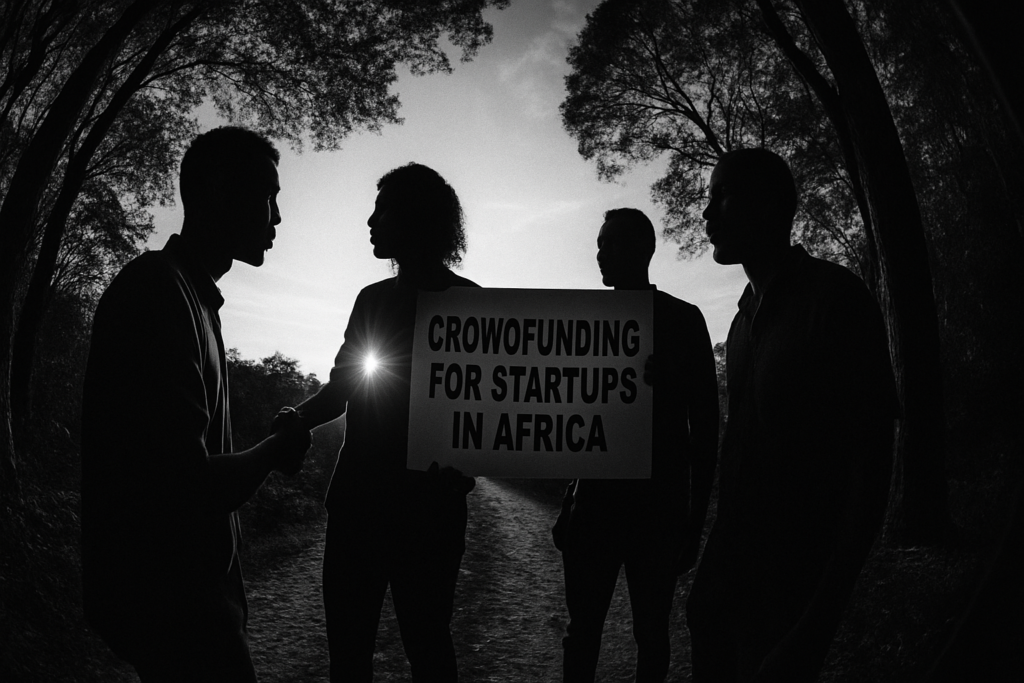Understanding Global Funding for Startups
Grasping the nuances of global funding can significantly aid startup growth. Different geographical regions offer diverse funding options, each with unique characteristics and benefits.
Venture Capital
Venture capital (VC) is a prominent funding source in regions like Silicon Valley. VC firms provide substantial capital in exchange for equity. They focus on high-growth potential startups in technology, healthcare, and biotech. Sequoia Capital and Accel are notable examples with extensive portfolios of successful investments.
Angel Investors
Angel investors, usually high-net-worth individuals, invest personal funds in startups. These investors often provide mentorship and networking opportunities along with capital. For instance, Peter Thiel and Ron Conway have made significant contributions as angel investors. They target early-stage startups and can catalyze further investment.
Government Grants
Government grants are prevalent in regions like Europe. These non-repayable funds support various sectors, including innovation, research, and development. The European Innovation Council (EIC) and Small Business Innovation Research (SBIR) program in the U.S offer such grants. Startups can leverage these grants to mitigate financial risk without diluting ownership.
Crowdfunding Platforms
Crowdfunding platforms like Kickstarter and Indiegogo enable startups to raise small amounts of capital from a large number of people. This method suits consumer-focused products and allows entrepreneurs to validate ideas and gauge market interest. Successful campaigns can attract additional funding from other investors.
Accelerators and Incubators
Startup accelerators and incubators offer funding, mentorship, and resources. Programs like Y Combinator and Techstars have supported numerous startups by providing seed funding and intensive growth programs. These programs help startups refine business models, scale operations, and connect with investors.
Corporate Venture Capital
Corporate venture capital (CVC) involves large companies investing in startups. Companies like Google Ventures and Intel Capital use CVC to gain innovative insights and strategic advantages. CVC provides startups with financial backing and access to corporate resources and expertise.
Understanding these global funding sources can help startups align with suitable opportunities and create a solid foundation for growth. Identifying the right mix of funding sources based on the startup’s stage, industry, and goals is crucial for long-term success.
Types of Global Funding Opportunities

Navigating the world of startup funding means understanding the several types of global funding opportunities available. Below, I’ll explore the key sources to help streamline your search for capital.
Venture Capital
Venture capitalists (VCs) provide high-risk, high-reward investments to startups with strong growth potential. Typically, VCs offer large sums, often ranging from $1 million to over $100 million, in exchange for equity. Prominent examples include Sequoia Capital and Andreessen Horowitz.
Angel Investors
Angel investors, like Peter Thiel and Ron Conway, are wealthy individuals who fund startups early in their lifecycle. Investments typically range from $25,000 to $500,000. These investors not only provide capital but also mentorship and industry connections.
Crowdfunding Platforms
Crowdfunding platforms like Kickstarter, Indiegogo, and GoFundMe offer a way to raise funds from a large number of people, often in small amounts. This method leverages the power of online communities to finance projects or ideas. Popular campaigns often raise anywhere from $10,000 to $1 million.
Government Grants and Loans
Governments around the world offer grants and loans to support innovation and economic growth. These funding sources are non-dilutive, meaning you don’t give up equity. In Europe, programs like Horizon Europe grant funds for research and development, while the Small Business Administration (SBA) in the US provides various loan programs for startups.
Regional Funding Opportunities
Exploring regional funding opportunities reveals unique options tailored to specific markets. Each region offers distinct advantages for startups.
North America
North America stands out with its robust venture capital ecosystem. The US and Canada host numerous venture capital firms such as Andreessen Horowitz and Insight Partners. Angel investors including Peter Thiel and Ron Conway are highly active in the region. Government programs like the Small Business Administration offer additional support.
Europe
Europe offers diverse funding sources tailored to a variety of industries. The European Investment Fund and Horizon Europe provide substantial grants. Venture capital firms like Atomico and Balderton Capital focus on tech startups. Angel investors such as Hermann Hauser offer early-stage funding.
Asia-Pacific
Asia-Pacific boasts rapidly growing funding opportunities. Major venture capital firms like SoftBank Vision Fund and Sequoia Capital India have significant influence. Government-led initiatives such as Singapore’s Enterprise Development Grant and China’s tech incubators support innovation. Angel investors in markets like India and China are increasingly active.
Latin America
Latin America provides emerging opportunities for startups. Venture capital firms such as Kaszek Ventures and Monashees capitalize on the region’s growth. Government programs like Brazil’s BNDES and Chile’s CORFO offer funding and support. Angel investors in countries like Mexico and Brazil are gaining prominence.
Key Considerations for Global Funding
When seeking global funding, it’s crucial to address several key areas that can significantly impact your startup’s success.
Legal and Regulatory Frameworks
Understand each target country’s legal environment to navigate compliance issues effectively. Consider intellectual property rights, which vary by region, and local business laws.
For example, General Data Protection Regulation (GDPR) compliance is essential for startups operating or securing funding in the European Union (EU). Additionally, account for taxation regulations as they directly influence financial planning and investor relations.
Cultural and Market Differences
Adapt your approach to align with diverse cultural and market norms. Recognize variations in business practices and communication styles. For instance, in Japan, building relationships through multiple meetings is crucial, whereas in the US, swift decision-making might be more valued. Assess market demands, as cultural preferences can significantly shape product development and marketing strategies.
Currency and Financial Risks
- Mitigate currency fluctuations and financial uncertainties by employing strategies like hedging.
- Analyze exchange rates, especially if operating in volatile regions.
- Understanding economic stability and interest rates of the funding source country helps in planning long-term financial strategies.
- Startups funding in Brazil face different challenges than those in Switzerland, primarily driven by their unique economic conditions.
Success Stories and Case Studies
Exploring successful startups highlights the potential of global funding opportunities. These examples provide valuable insights and inspiration for your own ventures.
Airbnb: From Local to Global
Airbnb started with the founders renting out their apartment to visitors. They attracted initial funding from Y Combinator, one of Silicon Valley’s most prestigious startup accelerators. After receiving seed funding, they expanded globally. Today, Airbnb is a multi-billion-dollar company operating in over 190 countries.
Grab: Dominating Southeast Asia
Grab began as a ride-hailing service in Malaysia. They secured early-stage funding from Vertex Ventures and GGV Capital, both globally recognized venture capital firms. Grab’s focus on localized services and regional market understanding helped them dominate Southeast Asia, branching out into food delivery and digital payments.
Stripe: Revolutionizing Online Payments
Stripe, founded by two Irish brothers, aimed to make online payments easier. They received seed funding from Y Combinator and subsequent rounds from major investors like Sequoia Capital and Andreessen Horowitz. Stripe’s innovative approach to payment processing led to rapid growth, making it a key player in the financial technology sector worldwide.
Nubank: Leading Latin America’s Fintech Revolution
Nubank, a Brazilian financial technology company, addresses banking inefficiencies. Sequoia Capital and Kaszek Ventures backed Nubank in its early stages. Overcoming significant regulatory challenges, Nubank expanded its customer base across Latin America. By focusing on transparency and customer satisfaction, Nubank became one of the world’s largest independent digital banks.
TransferWise: Transforming Currency Exchange
TransferWise began by solving high currency exchange fees for individuals. Founders secured initial funding from Seedcamp and various angel investors. Later, top-tier investors like Andreessen Horowitz and Baillie Gifford supported them. TransferWise’s low-cost, transparent service reshaped the international money transfer market, earning a strong global presence.
Xendit: Empowering Southeast Asian Businesses
Xendit, a technology company based in Indonesia, facilitates digital payments for businesses. Investors such as Y Combinator and Accel provided early-stage backing. Xendit’s deep understanding of regional market needs allowed it to scale and become one of Southeast Asia’s leading payment infrastructures.
These success stories underscore the importance of leveraging global funding opportunities while understanding regional market dynamics. By learning from these examples, you can navigate the complexities of international funding and drive your startup towards success.
Tips for Securing Global Funding
Startups must navigate complexities to secure global funding effectively. I’ve compiled these essential tips to help startups reach their funding goals.
Research Potential Investors
Identify and research potential investors. Look for investors who have previously funded startups in similar industries. Check public databases like Crunchbase or AngelList for detailed investor profiles and their funding histories.
Build a Strong Online Presence
Develop an engaging online presence. Maintain an updated LinkedIn profile and a professional website showcasing the startup’s mission, achievements, and team. Social media channels help engage with a wider audience and attract investor interest.
Create a Compelling Pitch Deck
Craft a compelling pitch deck targeting global investors. Focus on your unique value proposition, market potential, financial projections, and team expertise. Include case studies or success stories if applicable.
Understand Cultural Differences
Understand the cultural nuances of your target investors. Tailor your presentation style to align with their cultural expectations, communication preferences, and business etiquette. This builds trust and strengthens investor relationships.
Legal Compliance
Ensure legal compliance in targeted regions. Consult international business lawyers to navigate differing legal frameworks, intellectual property rights, and tax regulations. This prevents future legal complications.
Leverage Networking Platforms
Leverage networking platforms to connect with international investors. Attend global startup events, pitch competitions, and webinars. Platforms like LinkedIn, Meetup, and Startup Grind offer excellent opportunities to network with investors.
Demonstrate Market Traction
Show concrete evidence of market traction. Highlight metrics like:
- user base growth,
- revenue milestones
- customer testimonials
Tangible evidence increases investor confidence in your startup’s potential.
Seek Mentorship
Seek mentorship from experienced entrepreneurs who’ve secured global funding. Platforms like Y Combinator and Techstars provide mentorship programs to help refine your pitch and strategy. Mentors offer valuable insights and connections.
Implementing these tips boosts your chances of securing global funding. Remember to stay adaptable, be persistent, and keep refining your approach.

 Chief Marketing Officer (CMO) & Unique Author
Annamae Solanoric is the Chief Marketing Officer and a distinctive voice within the company as a unique author. Combining her passion for storytelling with her deep expertise in branding and digital marketing, she not only leads the company’s marketing strategies but also crafts compelling narratives that engage and inspire audiences. Her work as an author has been widely recognized, and she seamlessly integrates her creative vision into building the company’s brand. Annamae’s leadership in both marketing and content creation drives innovation and helps establish strong connections with clients and partners alike.
Chief Marketing Officer (CMO) & Unique Author
Annamae Solanoric is the Chief Marketing Officer and a distinctive voice within the company as a unique author. Combining her passion for storytelling with her deep expertise in branding and digital marketing, she not only leads the company’s marketing strategies but also crafts compelling narratives that engage and inspire audiences. Her work as an author has been widely recognized, and she seamlessly integrates her creative vision into building the company’s brand. Annamae’s leadership in both marketing and content creation drives innovation and helps establish strong connections with clients and partners alike.
